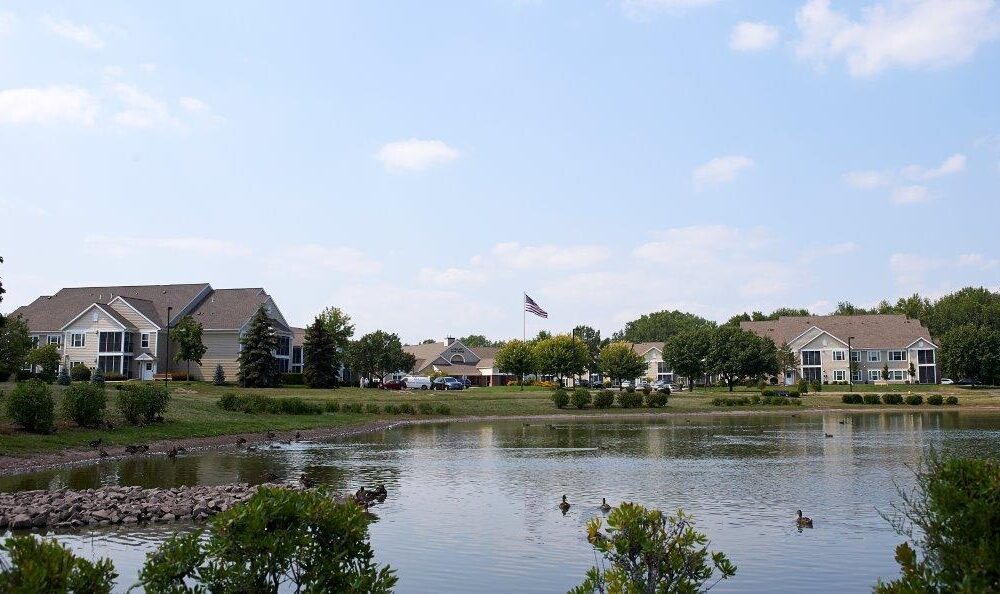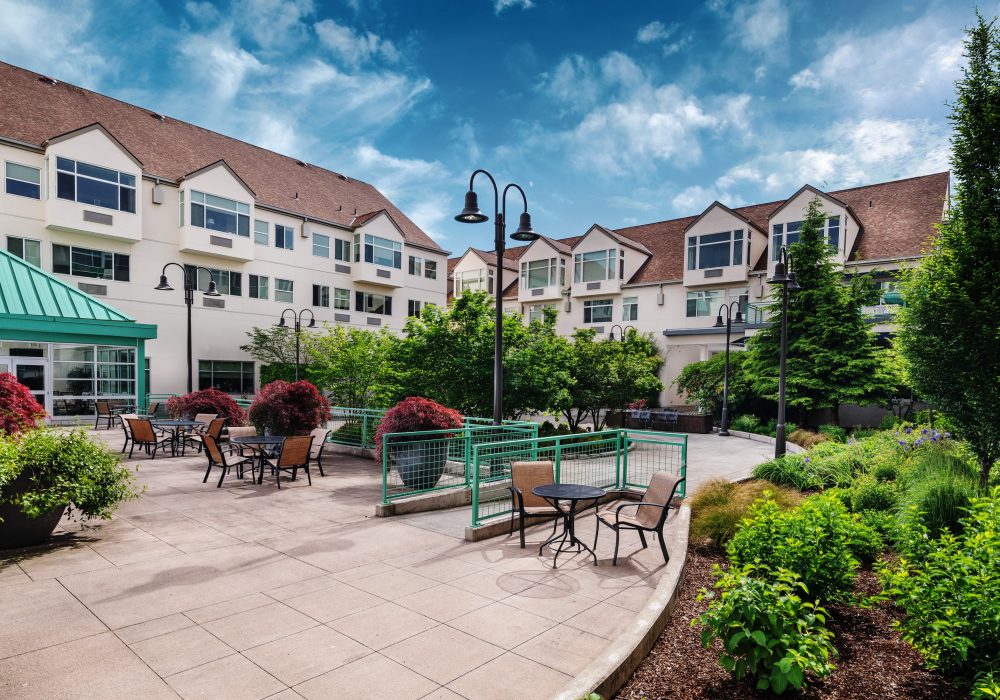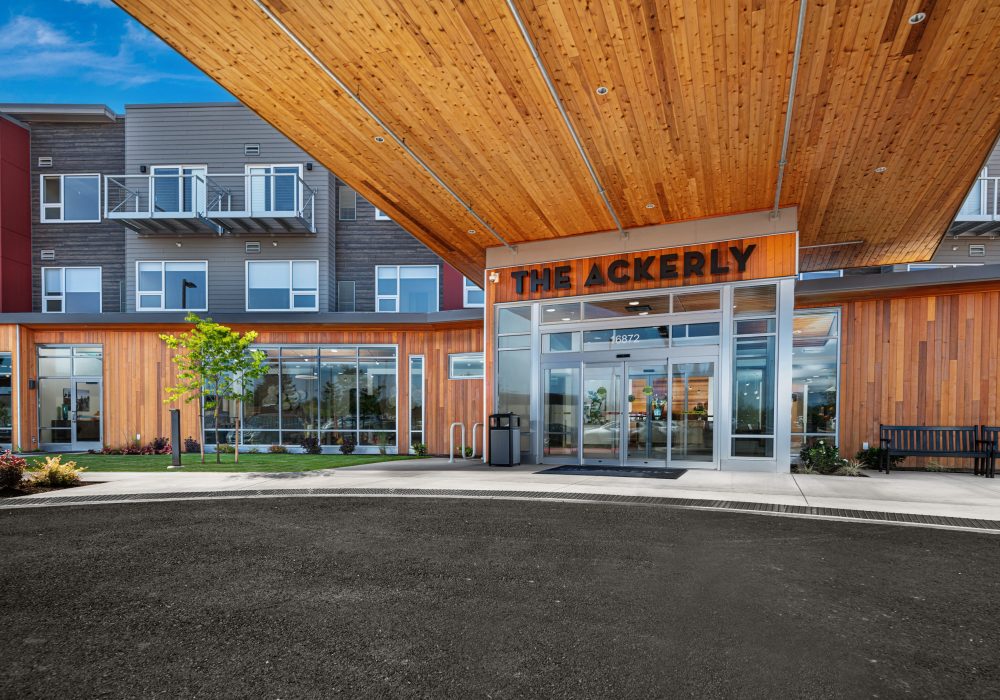
When you are the primary caregiver for someone with Alzheimer’s and dementia, it can be hard to turn the reins over to a memory care community. You know your loved one’s routine, needs, and desires better than your own. However, as dementia progresses, memory care can become a necessity for many caregivers and people living with dementia. Explore what memory care is, how you know a loved one is ready to make the move, and important questions to ask before settling on a community.
What is Memory Care?
Memory care is a unique type of senior living that offers specialized care services for people living with Alzheimer’s and related forms of dementia. These communities often offer specially trained staff who understand how dementia affects individuals and families and then offers services to help residents with this condition live their best, most meaningful and purpose-filled life.
Many memory care communities offer services specifically designed to keep residents with dementia safe while having a high quality of life.
Memory Care Services Offered
- Dementia-friendly menu options
- Secured apartments and courtyards to prevent wandering
- Therapies to manage behavioral and psychological symptoms of dementia
- Exercise programs for people with dementia
- Poetry and art therapies
- Medicine management
- Assistance with activities of daily living
- On-site support groups for family members
Memory care is designed to come alongside families coping with a dementia diagnosis, to ease the stress of caregiving, and ultimately, to improve the life of the person living with the disease.
Experience Leisure Care Memory Care
How Do You Know You Need Memory Care?
Dementia is a progressive disease that worsens over time. At the beginning stages of the disease, it is possible for a person to live on their own and be fully independent. However, as the disease progresses and cognitive ability declines, it may become unsafe for that person to live alone or even with a family member. Here are signs that it may be time for a caregiver to consider moving a loved one to memory care.
1. Worrying all the time about your loved one’s safety
As dementia progresses, it causes disorientation, a tendency to wander and become agitated. This can cause caregivers to worry about their loved one’s physical safety – no matter how often they are able to check on them.
2. Hoarding or an increase in unnecessary purchases
Hoarding, buying things without needing them, and an unwillingness to part with items may be an indicator that it’s time to move to memory care. This can mean your loved one is detached from reality and may be endangering themselves and their finances without more oversight.
3. Poor or filthy living conditions
If your loved one is living in an unkempt house with bills piling up, food rotting in the fridge, and uncollected trash, it may be a sign it’s time to get more help. Memory care communities provide regular housekeeping services to keep your loved ones living environment safe and clean.
4. Hygiene issues
Memory care is able to help with personal care, grooming, and hygiene. A memory care community can help your loved one with activities of daily living in a way that is dignified and compassionate while ensuring they are cleaned and cared for.
5. Isolation or a loss of interest in hobbies
If your loved one rarely ventures outside his or her home and is restless and lonely, it may be time to seek out a community living environment. As dementia progresses, it can be hard to take seniors with dementia out because behavior becomes increasingly predictable. In memory care, professionally trained staff provides activities and engagement suited to people with dementia.
6. Late payments and disorganized finances
It is entirely possible that as the disease progresses your loved one will forget to pay bills, letting them pile up as late fees compound. Even the most financially diligent person can fall behind on bills when dementia strikes. Noticing your loved one is struggling may be a sign that a move to memory care is imminent. Caregiver stress.
Sometimes, caregivers may feel overwhelmed, having trouble sleeping, and may even be developing health issues of their own as they care for a loved one. It is totally understandable that caring for someone with dementia eventually takes its toll on the caregiver, and they need a partner in their caregiving journey. That’s a sign it’s time to start looking at memory care.
Making the Move to Memory Care
When choosing a memory care community, it’s important to find a place that both you and your loved one are comfortable, knowing your loved one will receive high-quality care in a safe and loving environment. Here are some important things to look for and some questions to answer before committing to a memory care community.
- Visit more than one community – even if the first one feels like the right fit. Take a tour, join residents for a meal, and talk with the staff to gain more insight into what the community culture has to offer.
- Visit communities you are considering more than once, at different times of the day.
- Explore financial planning and payment plans – including what happens if the person with dementia runs out of money. Not all memory care communities accept Medicaid so it’s important to have a solid financial plan in place.
- Understand how much family involvement is welcome at the community and how the community will communicate any changes in the care plan.
- Explore the programming and activities at the community and ensure they have active and engaging programs for people in all stages of dementia.
- Ask if your loved one will be able to bring familiar items from home and see a room like the one where they will live.
- Understand the community’s discharge policy and learn what will happen if your loved one needs a change in community due to the availability of continuing care.
- Stay for a meal and examine the menu for nutrition and dementia-friendly options. Ask the staff how they monitor the nutrition needs of each resident and if they are available to meet special dietary restrictions.
- Note the apparent well-being of residents. Are they comfortable, relaxed, and involved? Are they well-groomed, dressed appropriately, and clean?
- Don’t be afraid to ask the difficult questions of end-of-life care and hospice availability.
Find a Leisure Care Community
Better with age, exceptional with us! Come and see how Leisure Care communities are helping seniors rediscover (and sometimes reinvent) themselves.





